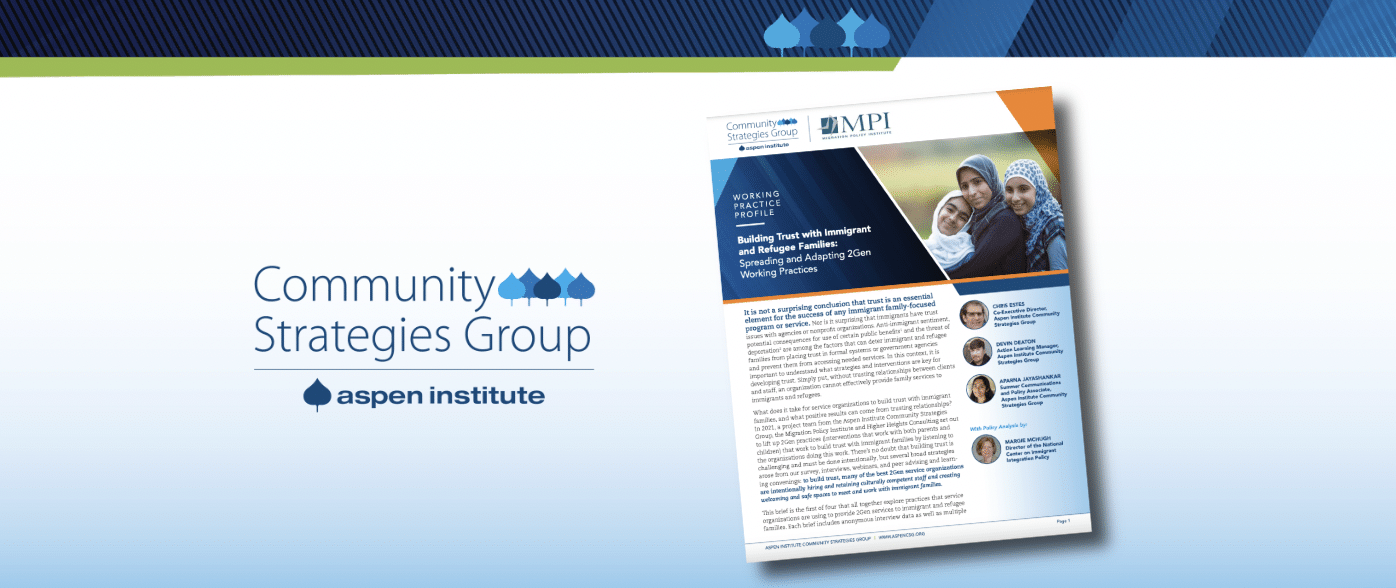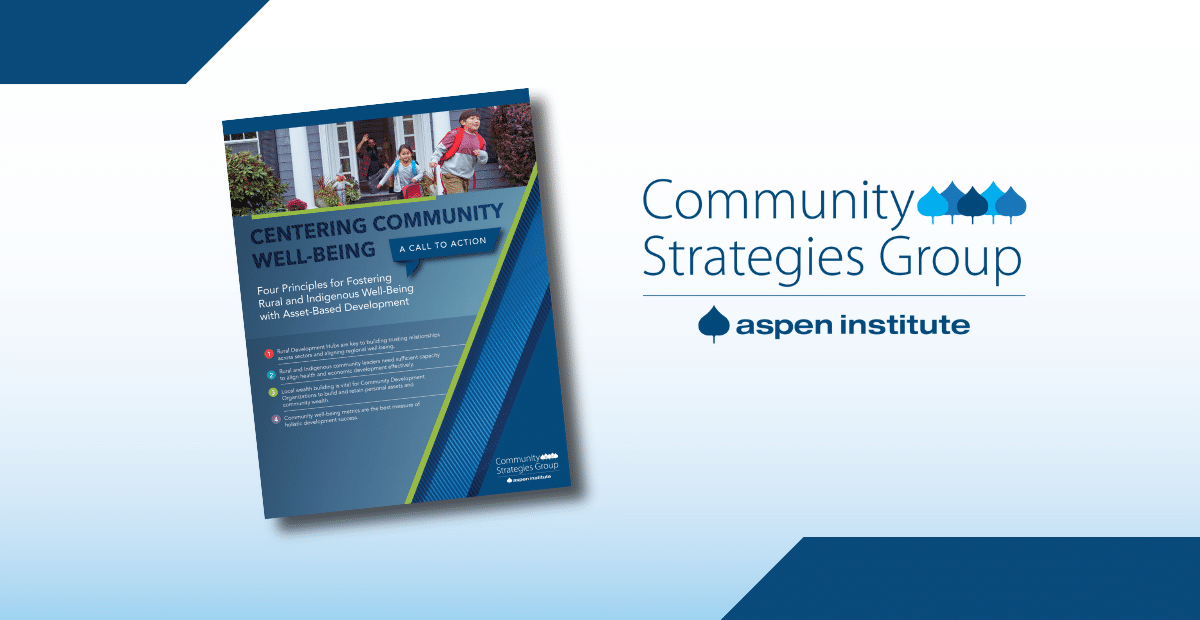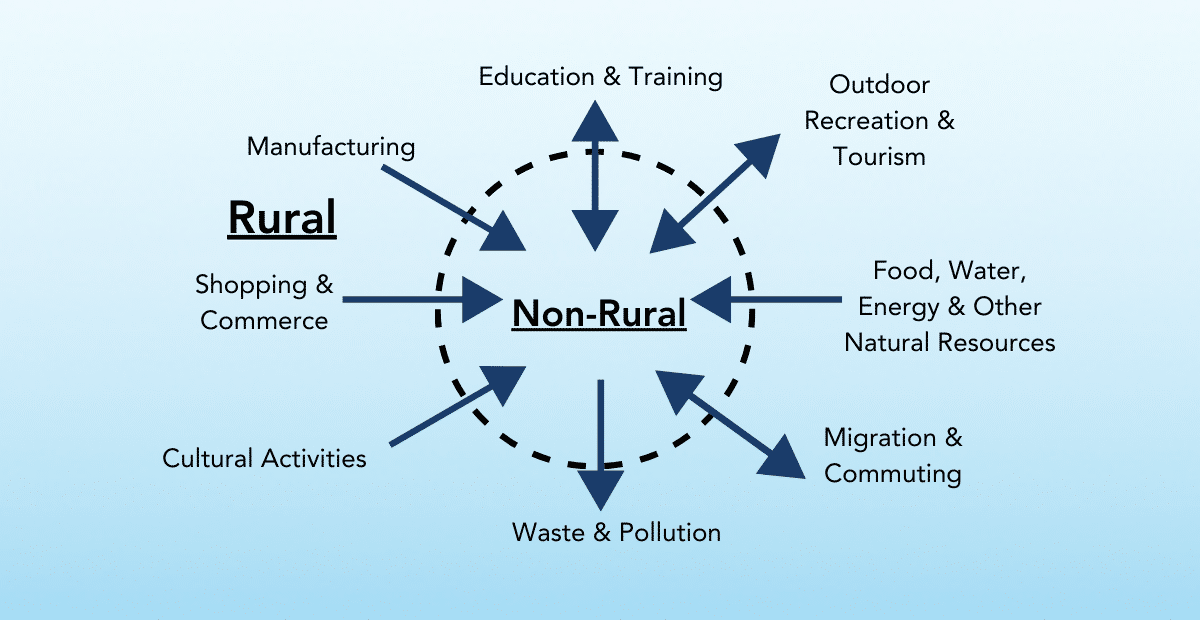View this Publication
Our Family Economic Success briefs capture lessons learned from a year-long project, including four webinars and peer learning sessions, on the best organizational strategies for providing 2Gen services to immigrant and refugee families.
Building Trust with Immigrant and Refugee Families focuses on why trust between social service organizations and their clients is crucial to effectively provide services to immigrant and refugee families. How can organizations form trusting relationships and sustain them long-term to best serve these vulnerable communities? This is just one brief within a series; other topics include growing language skills, responding to differing immigration statuses, and using cultural competency to best support these groups.
This brief builds on an August 2021 event hosted by the Aspen Institute Community Strategies Group in partnership with the Migration Policy Institute and Ascend at the Aspen Institute. The video recording is below.
What is the 2Gen approach?
By working with families to solve problems, access new resources, and sharpen existing talents and skills, the 2Gen approach creates experiences and opportunities for all families to reach their full potential and for communities to thrive economically and socially.
How service organizations are building trust to better serve immigrant and refugee families Across The Family:
- Immigrant parents are often busy working multiple jobs, so lean into the 2Gen strategy of making intake processes seamless through a single application.
- Not all integrated services need to be offered “in-house” — warm handoffs to strong partners can help provide wraparound services for immigrant and refugee families.
- Follow the method of “growing your own” by hiring former clients to become new staff and teachers — they will bring strong language skills and informative life experience to their roles.
- Create safe and welcoming spaces to meet and work with immigrant families. Sometimes that’s an intentionally designed space at your organization, and sometimes it means meeting parents and children where they are most comfortable, including at school or in their own homes.
- When you design new offerings, make sure they are flexible and scheduled at times that meet clients’ needs and keep innovating on trainings to meet the changing needs of the community.
- Include immigrant parent voices at key moments like program design and evaluation; greater ownership and participation will result from clients and customers knowing they are included in the process.
EVENT RECORDING
Three organizations that are successfully building trust with immigrant and refugee communities share:
- How community-based non-profits can develop deeper relationships with their immigrant family clients;
- How school systems can provide safe spaces to develop stronger relationships among parents, children, and teachers; and
- How home visiting programs can increase participation by hiring and retaining staff that immigrant families trust.
FEATURED EXPERTS
Felipe Pinzon: Executive Director, Hispanic Unity of Florida
Stephanie K. Sterling: Director of Family Services, Catholic Charities of the Diocese of Baton Rouge
Vickki Maloid: Early Childhood Program Manager, Catholic Charities of the Diocese of Baton Rouge
Alece Montez: Associate Chief of Family and Community Engagement, Denver Public Schools
Lindsay McNicholas: Executive Director of Family Engagement, Strategy and Development, Denver Public Schools
Chris Estes: Co-Executive Director, Aspen Institute Community Strategies Group
Devin Deaton: Action Learning Manager, Aspen Institute Community Strategies Group
Aparna Jayashankar: Summer Communications and Policy Associate, Aspen Institute Community Strategies Group
Margie McHugh: Director of the National Center on Immigrant Integration Policy, Migration Policy Institute








